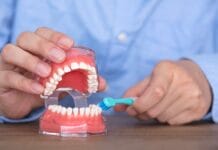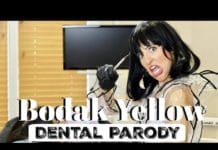You see them all the time, difficult patients. They are definitely not an endangered species. We all have those war stories. Throughout the hygiene program, and the few months I’ve been in practice, I’ve already had my fair share of difficult patients. Even though they can sometimes bring a negative atmosphere to the appointment, we still have time to change the outcome before they leave the chair.
For starters, there are different types of difficult patients.
One of the most common is a patient who is having a bad day and is taking it out on whoever they are around. Another common type of difficult patient is the patient who continues to come to their scheduled appointments and does not follow any of your customized recommendations. Routinely at this point, you reeducate oral hygiene instructions, explain the reasons why you recommended that specific homecare, and discuss your findings, but still, they do not change their habits. For a patient like this, you can attempt to present the information and recommendations differently. Maybe that patient is a visual learner. You could demonstrate models or present brochures to help demo their homecare.
Then there’s that patient that is in their very own category. One patient, I can think of was a new patient who was late to the appointment and had to fill out paperwork (that’s a problem that we could rant about in itself). This patient also brought along her infant to the appointment. As I attempted to lay her back in the chair, I looked over, and I was shocked. She was breastfeeding! She looked at me like I was the crazy because I was trying to lay her back in the chair to begin treatment. I had to patiently wait until she was finished before I could begin the appointment. That day was a unique day at the office!
I recently had a patient that was so difficult; I may have to say that person would be in my top three.
This patient was new to the practice, coming in for his first appointment. As soon as the patient sat down in the chair, they reported they wanted a full mouth extraction due to experiencing generalized pain. I explained to him that it was unethical to extract any teeth that were perfectly sound. After taking an FMX, the radiographs revealed generalized, severe bone loss, active decay, and heavy radiographic calculus. The patient also had generalized inflammation and multiple exposed roots. I thoroughly explained my clinical findings and recommendations. This patient then refused periodontal charting or any cleaning until he spoke with the dentist. The doctor stated the patient did have a few areas of decay but did not need a full mouth extraction. She recommended scaling and root planning and some restorative work. The treatment recommendations angered the patient; he continued to say he wanted full mouth dentures.
At this point, the situation was not benefiting anyone and escalated. The patient began to insult the doctor and accused her of improper care because of their insurance. The treatment recommendations were not based on insurance coverage what so ever, but based on the actual need of this patient. Another fellow hygienist overheard the situation that was taking place and came in to help. She reiterated that it was an ethical issue and we can’t extract teeth that do not present with any problems. The aggravated patient got up and left the office.
Less than an hour later we got a call from another office asking for the patient’s radiographs. This situation was more than difficult; it was uncomfortable for myself and the doctor. The doctor and I remained calm and listened to the patient with respect, while we did not receive respect in return.
As dental professionals, we want the best for all patients difficult or not. We strive to help in the safest and most ethical ways possible, but when a patient like that tries to challenge that, we need to stand our ground. That day was a good learning experience. You can’t please the unpleasable, especially when it goes against what’s ethical.












